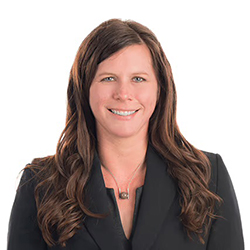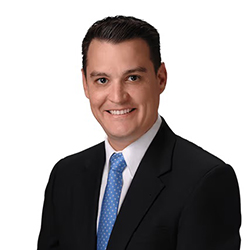U.S. firms of all sizes and across industries will need to provide detailed reporting on everything from emissions to labor practices.
By Laurie Hoose, senior manager, ESG at Plante Moran; Alejandro Rodriguez, partner, global services at Plante Moran; and Matt Stekier, principal, supply chain at Plante Moran
U.S. businesses, including small and mid-market companies, are increasingly being asked to report on everything from emissions to labor practices as the larger companies they do business with endeavor to comply with emerging domestic environmental, social and governance (ESG) guidelines, evolving European regulations, and the more immediate market-driven demand that partners and vendors exhibit complimentary values.

This important shift, seen in the growing number of RFPs received by small- and medium-sized businesses that ask respondents to demonstrate their commitment to everything from sustainable supply chains to ethical sourcing practices, represents a singular opportunity: companies that take even the most rudimentary steps to create their own ESG programs and reporting capabilities have the opportunity to rapidly distinguish themselves among large enterprises – industry leaders that want to partner with suppliers that help them comply with the market’s preferences and new rules, including:
These requirements do not exist in a vacuum. Most mid-market U.S. companies are impacted. The larger companies they do business with increasingly require partners and suppliers to provide the same information so they can comply with detailed reporting requirements. Large global organizations that have subsidiaries and offices in the U.S. are also following suit, making a sustainable supply chain the cost of doing business in many cases. In addition, consumers and investors are also increasingly considering companies’ sustainability practices, a fact readily apparent in the green marketing efforts of leading brands.
All of this can be overwhelming for U.S. supply chain leaders. Fortunately, there are several steps they can and should take now:
Ultimately, the ability to create more sustainable, environmentally-friendly supply chains provides businesses with another way to be more competitive, to thrive in RFPs and to differentiate their products and services from other suppliers and partners – in many cases while simultaneously mitigating their risks and lowering their operational costs by reducing power usage and embracing more efficient methodologies and practices. When viewed as an opportunity – an opportunity that equates to better business and better outcomes – the benefits are clear.

Laurie Hoose, senior manager, leads Plante Moran’s ESG practice. A 16-year veteran of the firm, she specializes in helping organizations align their nonfinancial disclosures with their strategic goals while reducing investor risk through actionable, measurable and continuous improvements. Laurie received her bachelor’s in computer science from the University of Michigan and a master’s in international business from Brandeis University. She also earned a minor in corporate environmental guidance from Copenhagen Business School and is a Fundamentals of Sustainability Accounting (FSA) credential holder.

Matt Stekier, principal, supply chain, serves clients by quickly identifying improvement opportunities that deliver tangible results and lower costs in a variety of industries, including the medical device, food and beverage, footwear and apparel, military vehicle and automotive manufacturing sectors. Matt earned his bachelor’s in supply chain management from Central Michigan University and a master’s in business administration from Wayne State University. A 10-year veteran of Plante Moran, he previously served in supply chain roles at Mercedes-Benz Technology and Ford Motor Company.

Alejandro Rodriguez, partner, global services, specializes in helping clients, from innovative startups to industry-leading multi-national corporations, to explore, establish, launch and operate highly successful business ventures in new markets and beyond the borders of their country of origin. A 15-year veteran of Plante Moran, he opened the Monterrey, Mexico office where he works closely with colleagues from the firm’s operations in Shanghai, China; Mumbai, India; and Tokyo, Japan. He received his bachelor’s in mechanical engineering with a minor in business administration after attending Monterrey Tech in Monterrey, Mexico and Colorado State University in Fort Collins, Colorado.
Scott Ellyson, CEO of East West Manufacturing, brings decades of global manufacturing and supply chain leadership to the conversation. In this episode, he shares practical insights on scaling operations, navigating complexity, and building resilient manufacturing networks in an increasingly connected world.